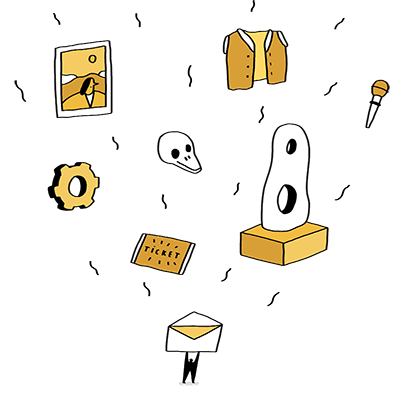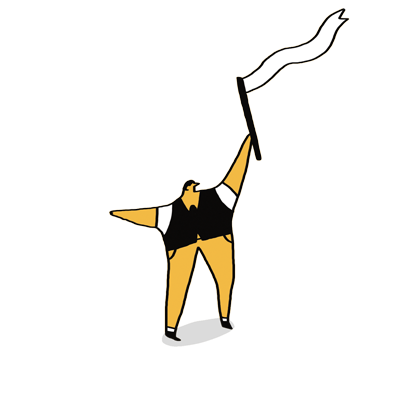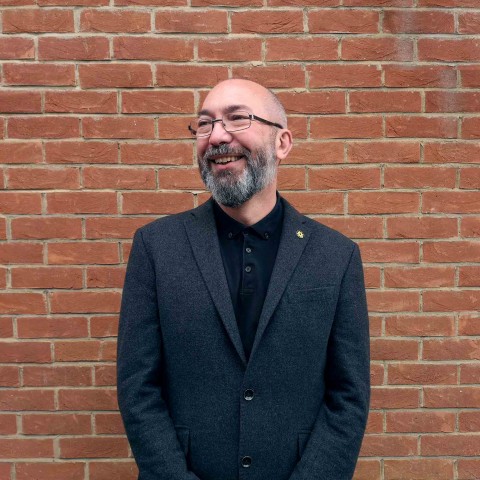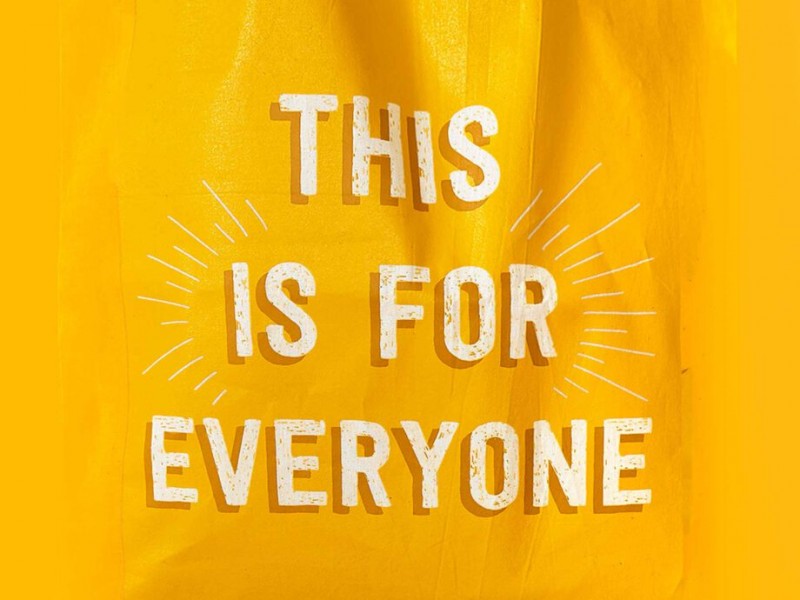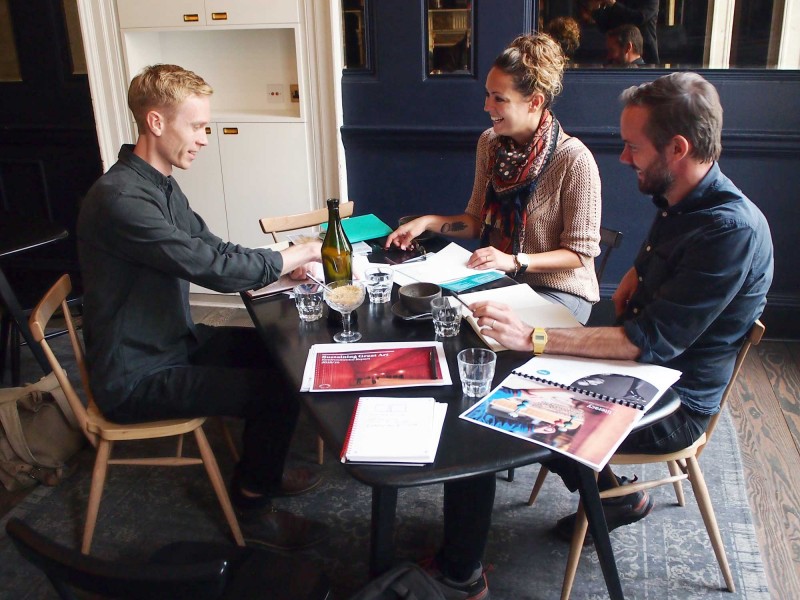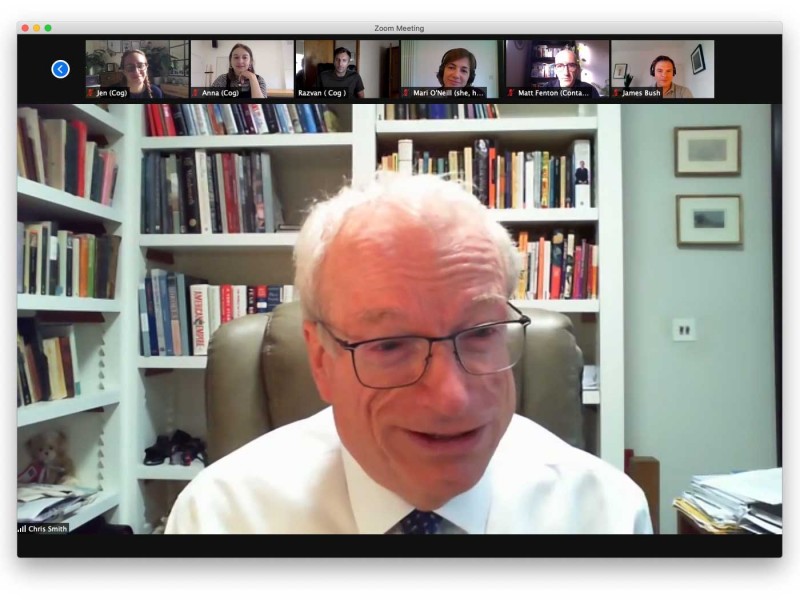We’ve worked towards a sustainable studio for decades. We’ve been inspired to share our approach.
Toward a sustainable studio
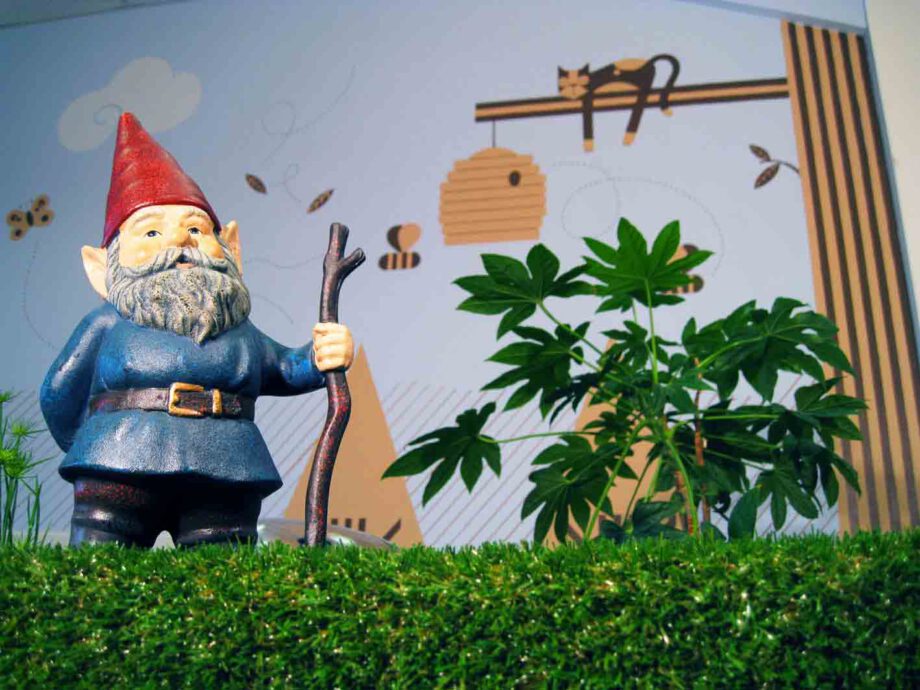
As a studio we believe that everyone should make all possible efforts to reduce their environmental impact. Small measures add up.
We’ve had a rigorous approach to sustainability for so long we used to call it our ‘Green policy’. But we rarely thought about sharing that approach beyond our team.
However, as signatories to Culture Declares, we’ve learned how important it is to make a public declaration and share examples. The movement has pushed us further and spurred us into action. Perhaps sharing our example will help others, and in turn encourage them to share their ideas and help us improve our approach.
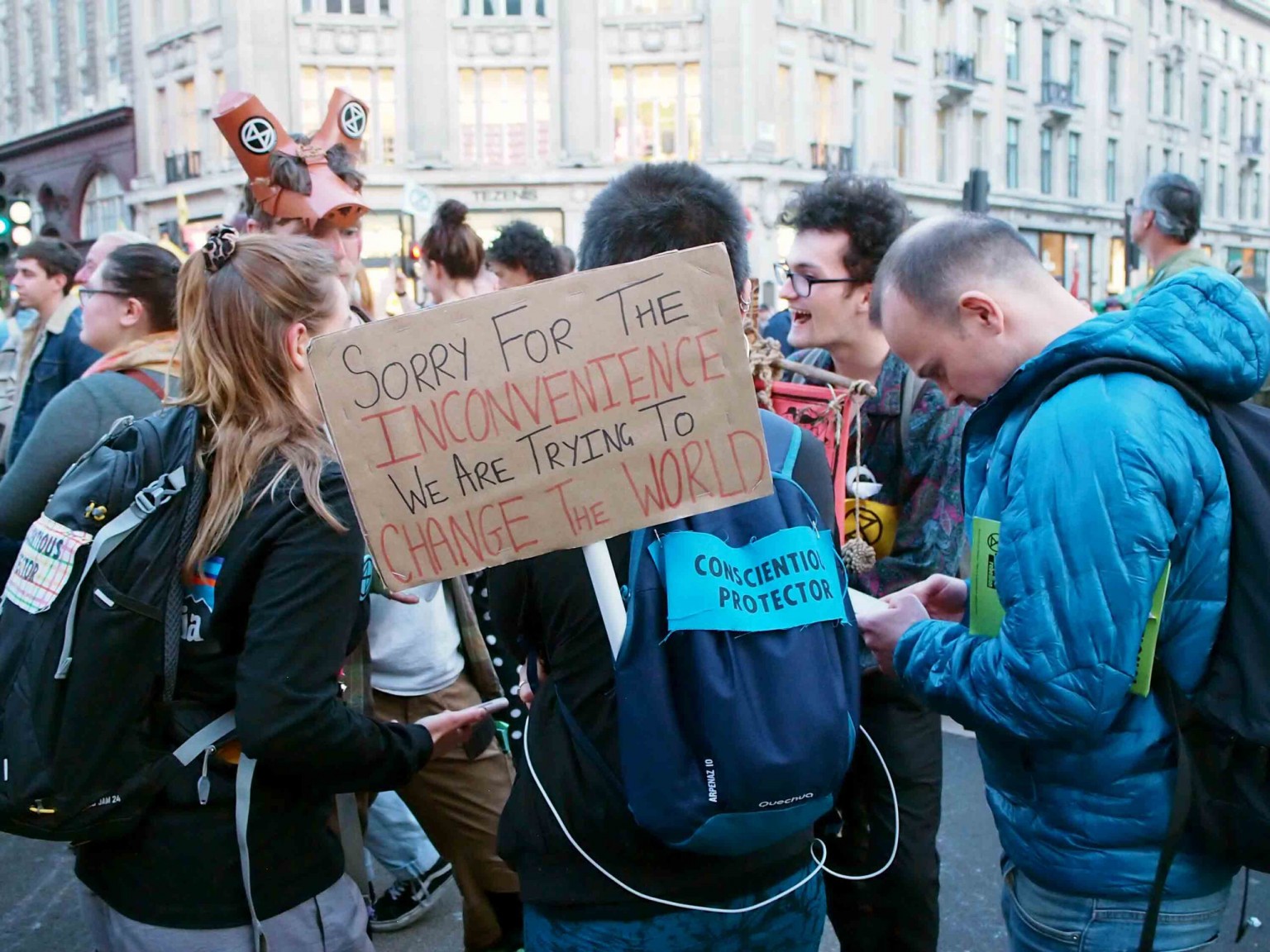 Conscientious protestors gathering in Oxford Circus.
Conscientious protestors gathering in Oxford Circus.
Our policies
Like most companies, we have a set of policies that lay out what we do and how we do it. We share these in welcome packs for new clients and team members. We think it’s important that everyone knows what to expect from us, and what we expect from them.
We can be flexible about how we work but we are intractable in issues around sustainability and ethics. We have a firm ethical policy that we’ll write about another time. And we’ve written elsewhere about our approach to sustainable website design.
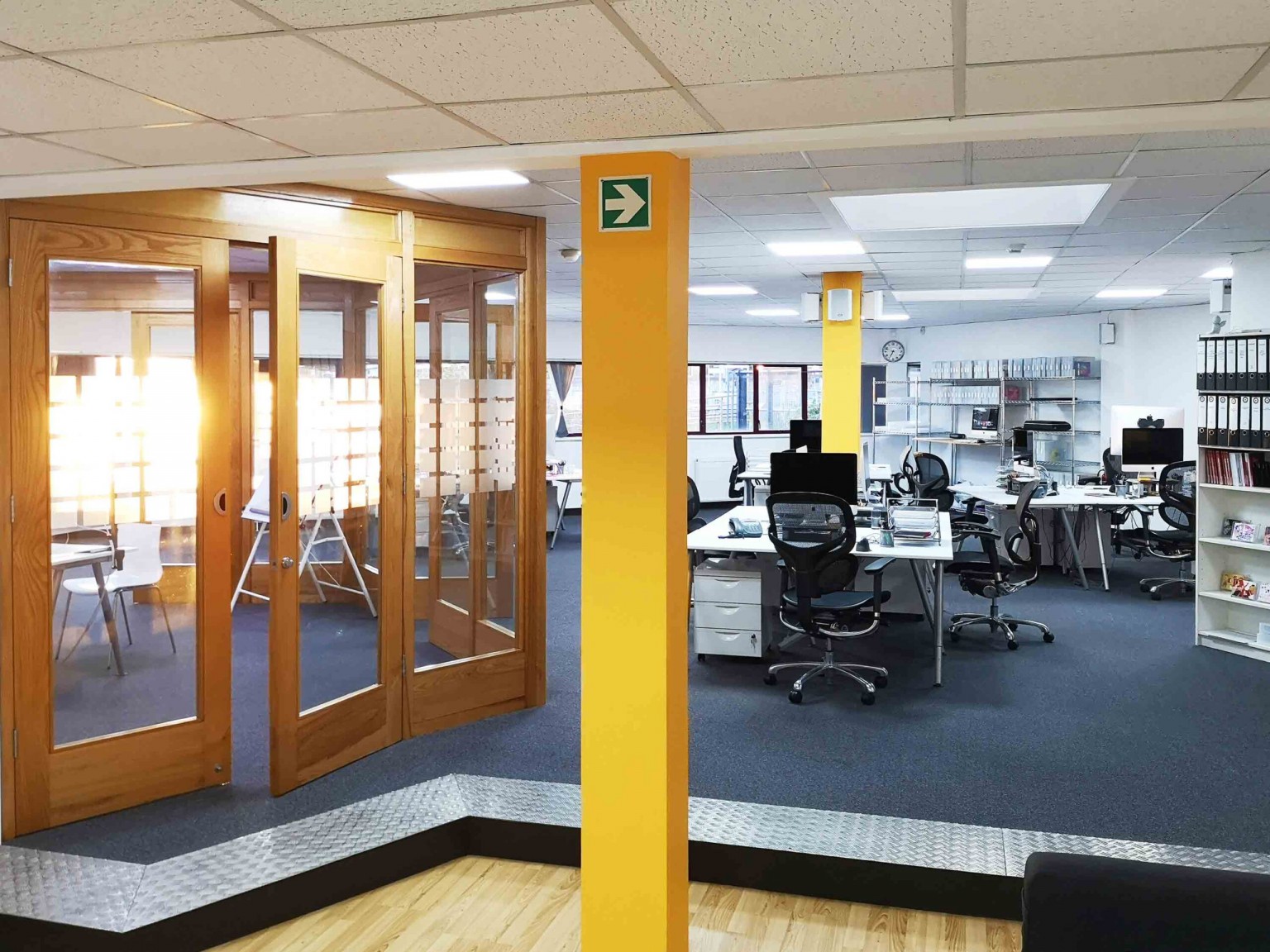 The Cog studio
The Cog studio
Our studio
When we’re able to, we work together at our studio in Greenwich in South East London.
We’ve found that this set up has many working advantages, and means we can reduce the impact we have on the environment.
A single, central hub (with excellent public transport links) means we can invest in creating the perfect work space: light, airy, open-plan with breakout areas, meeting rooms, a well-appointed kitchen and a shower room. From a sustainability perspective it means we are providing heat, light and a clean power supply to a single space rather than many homes.

Watering the plants in our indoor garden
And it means we can fill the studio with enough plants that we can have our own indoor garden, complete with a pond, garden gnomes and three fish, all called Dave.

Photo: Thomas Richter, UnSplash
Electricity
We’ve been using 100% renewable electricity for well over a decade.
We use suppliers who generate energy from sun and wind parks from across the UK. They generate 20% of their energy themselves and the rest comes from other green generators.
They estimate that they save 34,157 tonnes of CO2 annually from their wind parks and 188 tonnes from their sun parks.

Electrician Ed, fitting our new LED lighting
We’ve also taken measures to reduce our energy consumption in the studio:
- In recent years we’ve replaced the fluorescent lighting with LED alternatives which are up to 65% more energy efficient.
- We’ve replaced our heating and hot water boiler with an energy efficient upgrade, using a specialist green energy partner. We control the system remotely to provide maximum efficiency.
- All desktop computers are fully shut down each evening, and all non-server devices are shut down when the studio is unoccupied for more than a few days.
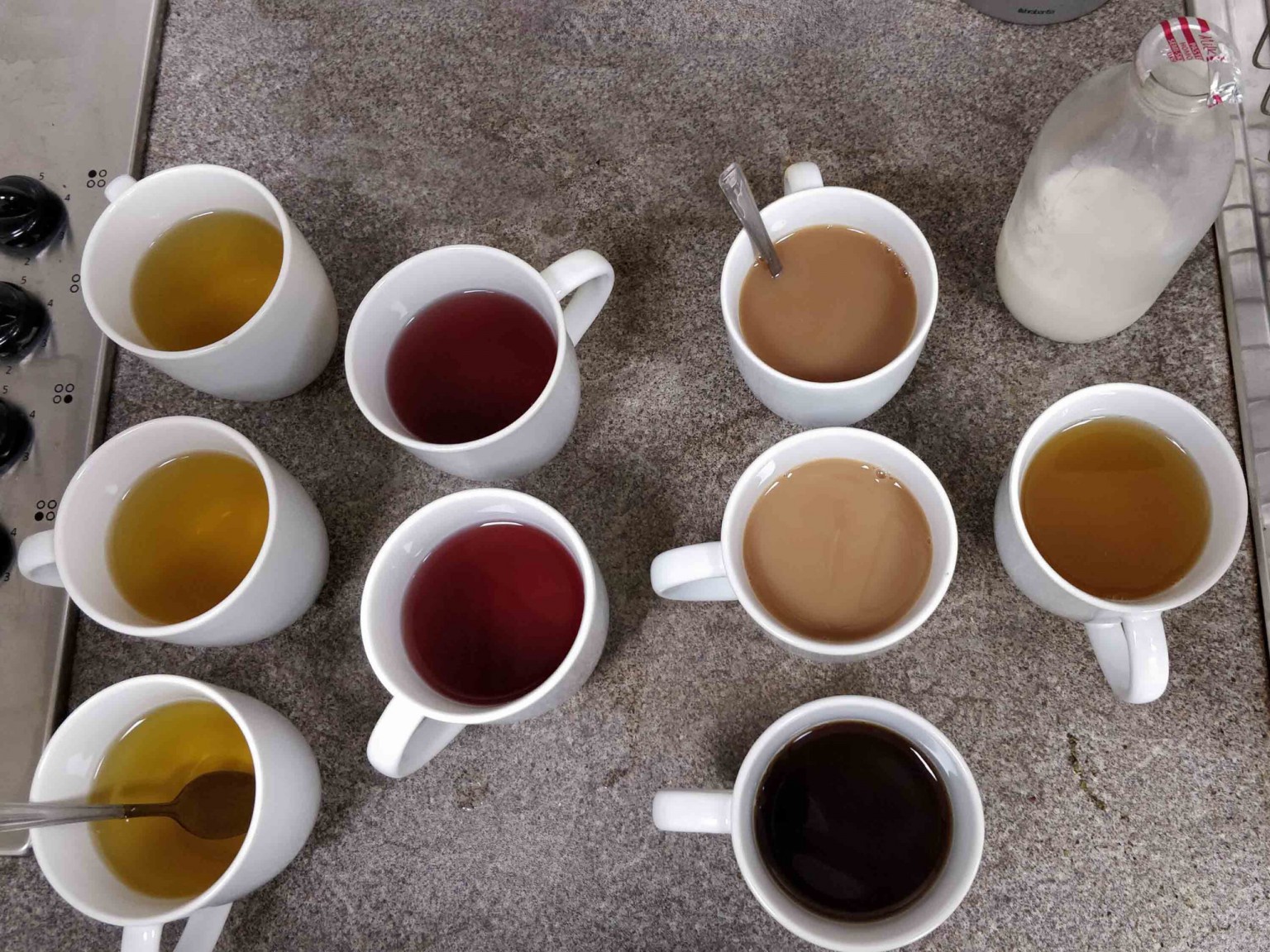 A typically complex tea round in the Cog studio.
A typically complex tea round in the Cog studio.
Food and drink
We have a well-stocked kitchen. As a team of tea-lovers, we (now) only buy unbleached and biodegradable tea bags, from suppliers like Clipper. We have our milk (yes, we get oat milk alongside the semi-skimmed) delivered twice a week, in returnable glass bottles. And we compost our used tea bags and coffee grounds.
The kitchen has a fridge and electric cooker; many of our team make or cook their own lunches to eat in the garden.
We don’t use bottled water, instead we have a water filtering system, providing drinking water from a separate tap. And we use an urn for hot water rather than boiling kettles several times a day.
We’re working hard on a no-single-use-plastics policy: we refill soap and washing-up liquid dispensers. And we buy only sustainable cleaning products.
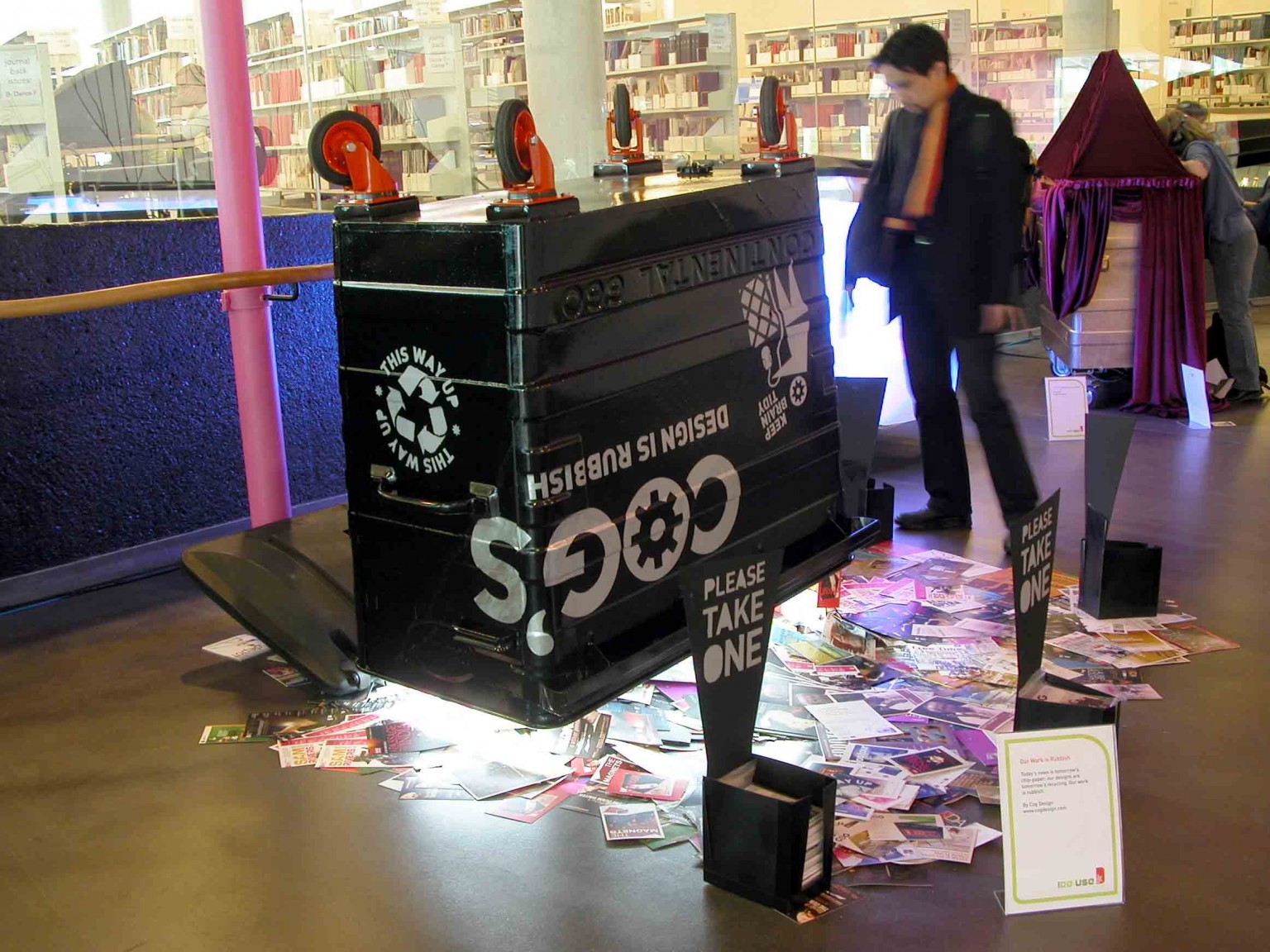 Our bin, exhibited as part of London Design Festival in 2006, at Laban dance studio (now Trinity Laban).
Our bin, exhibited as part of London Design Festival in 2006, at Laban dance studio (now Trinity Laban).
Recycling
We minimise use wherever possible but of course we produce waste, so we have a thorough recycling policy. We separate mixed recyclables and residual waste and pay for a fortnightly collection from our waste management supplier, Bywaters.
Our dry recyclables are taken to Bywaters’ solar powered materials recovery facility, where they further sort and recycle. There’s a great video on their website with more information about how this process works.
Bywaters have a zero-waste-to-landfill policy, so our non-recyclable residual waste is used for fuel.
In addition, specific types of waste goes nowhere near the bins:
- We post empty printer toner and ink cartridges back to our supplier who refill and recycle them.
- Glass is separated and taken to a recycling facility. Milk bottles are reused by our milk delivery company.
- We take redundant hardware to a recycling centre. And on the rare occasions where items are still usable but no longer needed, these are offered to our team or donated to favoured charities.
- Compostable waste is collected and used for garden compost (and Michael uses it to plant seedlings in our discarded toilet roll tubes).
Even our bin is recycled. We bought an industrial bin as part of a collective art project in 2006. Our work was a commentary on the waste produced by the cultural sector, so it seems appropriate that we’re still using that bin 15 years later.

Michael looking at his sunflower seedlings
Travel
Our studio is well located for public transport. It is literally on the concourse of Greenwich train and DLR station. We’ve made a video to guide visitors to our door.
We’re also on major bus routes and we’re part of the government’s cycle to work scheme. We have well used indoor bike racks and a studio shower.

The busy bike rack in our studio
We don’t have company cars and we travel to and from client meetings by public transport wherever we can.
At the moment, of course, we’re not in the studio and we’re holding all of our meetings online. We’ll be keen to continue to use video conferencing as much as possible in future (although we love visiting clients so we we’ll still be doing that).
Perhaps our most contentious policy for some potential clients is that we do not take on projects that require us to fly to meetings. Sometimes that means making tough decisions and walking away from interesting opportunities, especially in the States. Hopefully the recent rise in video calls has shown that flights don’t need to be an essential part of doing business.
We know we could be doing more and using less. We welcome any tips and suggestions from the team and beyond. Do drop us a line if you’ve got some great ideas to share.
